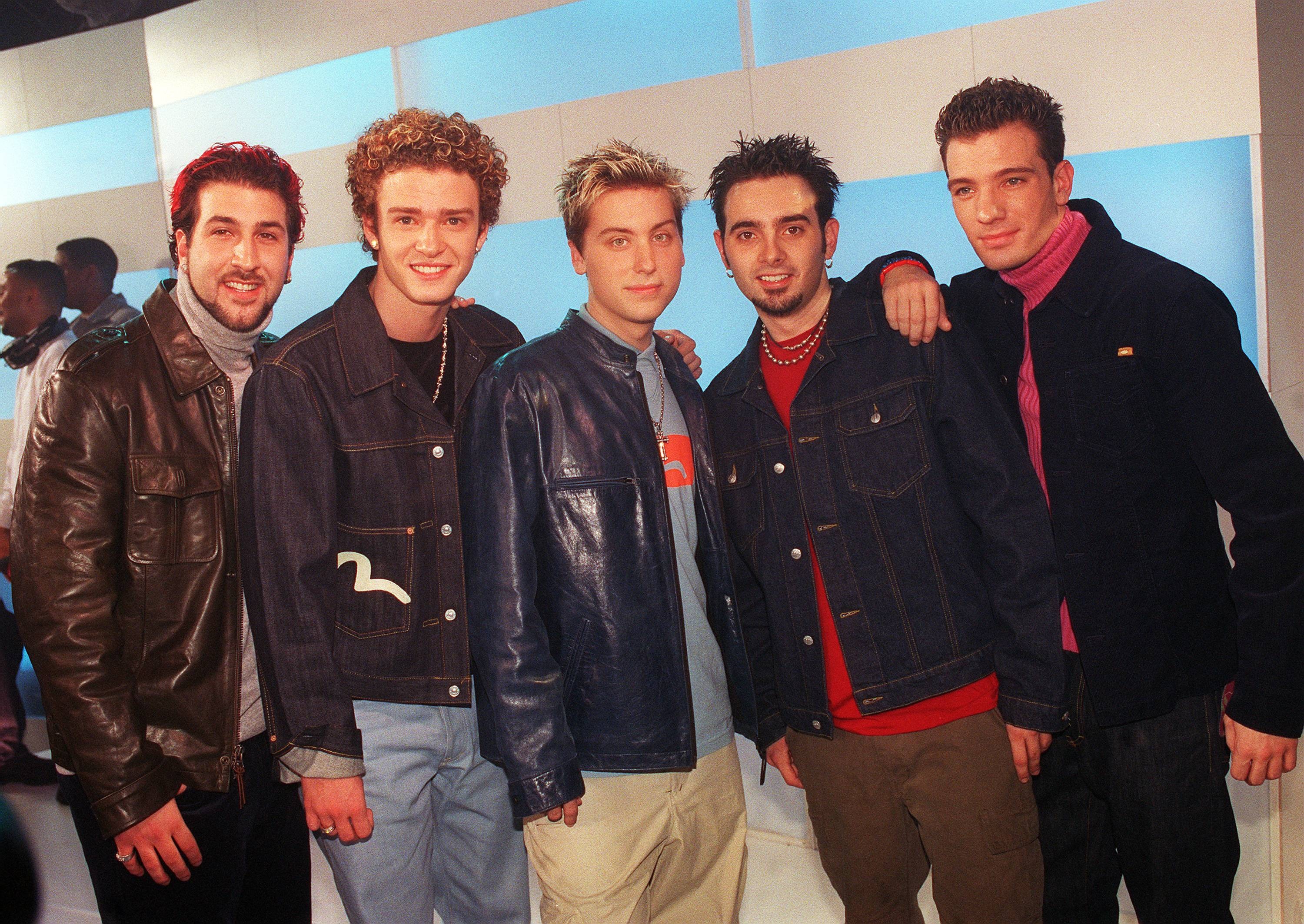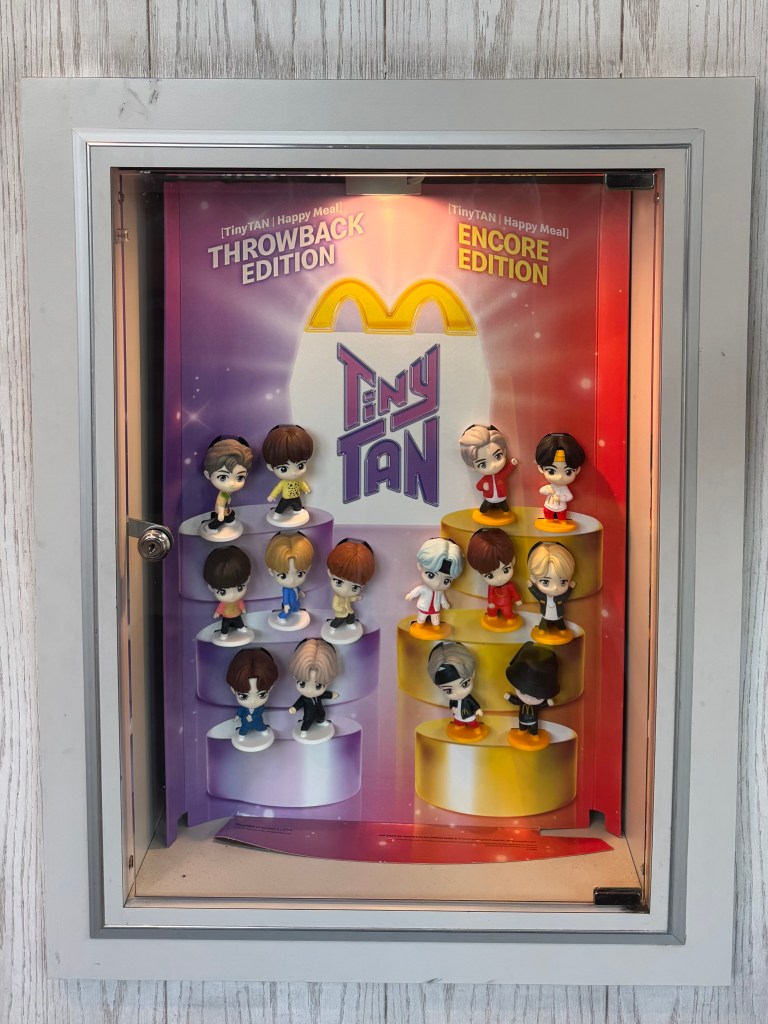
Scott Gries/ImageDirect

Audio By Carbonatix
Back in the late ’90s and early 2000s, I knew almost every single boy band gracing the pages of teeny bopper magazines like Bop, J-14, Tiger Beat and the like, including NSYNC, Backstreet Boys, B2K, Five, 98 Degrees and more. But recently, two age-affirming truths hit me after I had to Google what the K-pop group BTS dolls were in my kids’ Happy Meals: I really don’t know that much about pop music anymore, and the boy band type I grew up on has long been off the mainstream market.

Eric Diep
I wish I could say I had cool, brag-worthy taste in music in my preteen years. In my millennial defense, though, it’s also tough to say with any confidence that Top 40 music from my generation in the late ’90s and early 2000s would have provided me with much to brag about nowadays, anyway. But one thing my generation did seem to get right: boy bands — lots and lots of young, attractive boys and men who sang and danced to very surface-level music. We, newly pubescent girls, lost our ever-loving minds over this stuff. Popping and locking their way into our 12-year-old hearts, boy bands back then are laughable now, but they quickly captured our hearts and budding libidos all the same.
As a superfan, I somehow convinced my late dad, a lifelong fan of golden oldies and traditional country, to drive me almost three hours to the now-long-gone Texas Stadium on Aug. 14, 1999, to buy overpriced merchandise and sit in the nosebleed section with me to see NSYNC perform live. I cried. My dad probably did, too, but for entirely different reasons.
The official end of MTV may be near, after it was announced that some of its music channels were shutting down after 40 years. At first, it made me laugh: when was the last time anyone actually tuned in to the music television channel for music? Did we care that they pulled the plug on these channels in the U.K. and Ireland? It became a reality TV joke in America, as we all know well. But after I thought about it some, I realized that MTV played a huge part in my love for boy bands. Hell, it played a huge part in me coming of age. Afternoons and weekends were spent waiting in anticipation to see the boy band boy I just knew I’d marry one day on Total Request Live (yes, I did practice writing Diamond Timberlake a few times). And then somewhere between my puberty and perimenopause, boy bands faded into obscurity.
It’s generally considered that One Direction, who went on an indefinite hiatus in 2016, was the last boy band of this style to have any commercial success. Although highly debated, some consider The Beatles to be the first boy band, with their wildly successful careers and Beatlemania dominating the country in the 1960s. However, most consider the emergence of boy bands to be in the late ’80s with New Kids on the Block, and then in the mid- to late-’90s with the more polished Backstreet Boys, NSYNC, 98 Degrees and the like. Heartbreaking love songs, gyrating choreography, exposed abs and mid-song key changes were center stage and there seemed to be no end in sight to these seemingly factory-produced groups.
When news happens, Dallas Observer is there —
Your support strengthens our coverage.
We’re aiming to raise $30,000 by December 31, so we can continue covering what matters most to you. If the Dallas Observer matters to you, please take action and contribute today, so when news happens, our reporters can be there.
So, where did they go? Besides musical styles naturally changing over the years, one thought is that music’s likability on social media platforms like TikTok is shaping the pop music landscape with user-driven viral content. Individual artists are also much more popular than groups today, perhaps because fans are drawn to the singular, marketed personality of a solo star. Some boy bands did eventually produce highly successful solo artists, though, like Justin Timberlake, Harry Styles and Nick Jonas to name a few.
And boy bands of the past haven’t entirely disappeared, though, as we saw this past summer with the Backstreet Boys’ residency at the Sphere in Las Vegas, and in 2023 when almost every millennial woman freaked out at the possibility of an NSYNC reunion, thanks to their contribution to the soundtrack of Trolls Band Together. But although member Lance Bass had previously hinted at a reunion tour in the works, any possible plans have been temporarily scrapped due to NSYNC’s former frontman Timberlake’s recent Lyme disease diagnosis he announced in July of this year.
And today, thanks to a lot of that Googling, I understand that K-pop is king. It filled the void left by the decline of Western boy band dominance following the breakup of One Direction. The groups of my youth who were formed by industry heads like the infamous late Lou Pearlman (who ultimately was convicted of running a Ponzi scheme and defrauded acts like Backstreet Boys and NSYNC out of a large fraction of profits) were made to crank out trivial hits in very quick succession with a lot of focus on singing, dancing and remaining in the genre of bubblegum pop music. K-pop groups like BTS, Stray Kids, TXT and others have a broader, multi-faceted approach that includes intense training, multi-genre music and a strong emphasis on visuals and performance. The boy band has officially grown up.
So even though I’ve also grown up and my own taste in music now couldn’t be further from when I was 12, as I hear current pop music trends on social media, while turning the radio dial or in a movie my young kids have decided is their entire identity (Trolls, I’m looking at you), I realize that I don’t want to be left behind. Without realizing it, my kids keep me somewhat up to date on pop music, and right now, they really enjoy artists like Taylor Swift, Chappell Roan, and, thanks to the Trolls soundtracks that I seem to have to play on repeat in my car, they love some Justin Timberlake and company. And singing along with my kids to the voice of the guy who shaped my own identity for a few years growing up, that’s just about as special as it gets.